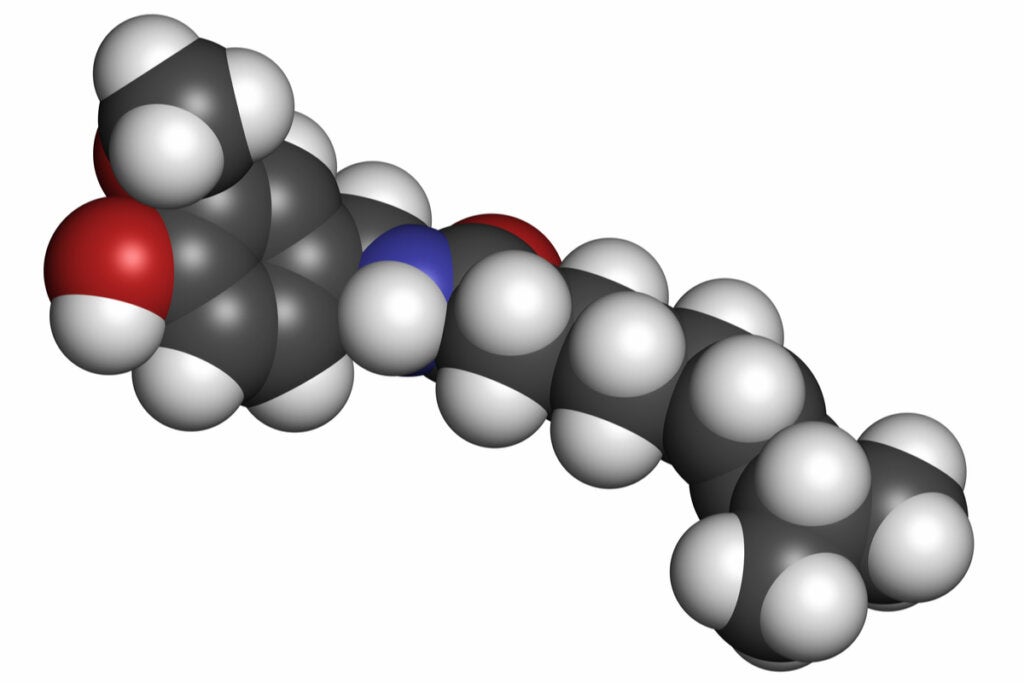The 2021 Nobel Prize in Medicine was awarded to Drs. David Julius and Ardem Patapoutian for an impressive piece of research on the secrets of touch. Although this isn’t one of the most valued senses in our increasingly visual world, in reality, it’s a true wonder of nature.
Since ancient times, man has wondered how the senses work. However, they originally focused more on sight and hearing. That was because it’s through them that we establish the most evident links with our environment. For this reason, the secrets of touch remained a mystery until very recently.
In the 18th century, René Descartes ventured to say that there were networks in the skin that fulfilled the function of sending information from the skin to the brain. As a matter of fact, fundamentally, he was correct. However, he didn’t present his hypothesis with any real evidence or detailed explanations to facilitate further investigation. In fact, it took two centuries for the secrets of touch to begin to be revealed.
“The groundbreaking discoveries… by this year’s Nobel laureates have allowed us to understand how heat, cold, and mechanical force can initiate the nerve impulses that allow us to perceive and adapt to the world around us.”
-Nobel Prize for Medicine 2021 Jury-
An ongoing investigation
During the 19th century, and the first decades of the 20th, the path of revealing the secrets of touch slowly advanced. In fact, before the 1940s, scientists already knew that sensory neurons existed and that their role was to record certain changes in the environment and transmit them to the brain from the skin.
In 1944, came the first milestone. Two researchers named Joseph Erlanger and Herbert Gasser discovered that there were specialized nerve fibers for the detection and translation of stimuli associated with touch to the brain. They verified that these allowed individuals to distinguish rough textures from smooth ones, among other aspects.
Erlanger and Gasser won the Nobel Prize in Medicine for these findings. However, several of the secrets of touch remained hidden. Indeed, they hadn’t yet discovered the mechanism by which phenomena such as temperature or pressure are translated into electrical signals that then travel through the nervous system.
The secrets of touch
David Julius is an American biochemist at the University of California, San Francisco. He decided to delve into the secrets of touch in the late 1990s. By then, scientists already knew about a substance called capsaicin. This is a compound that generates the sensation of burning in chili peppers.
Capsaicin causes pain and a burning sensation on the skin. However, scientists didn’t know why this happened. Julius and his team created a gigantic library of the genes present in sensory cells. All of them had the potential to react to heat and pain.
They started from the idea that some of these genes must react to capsaicin. After a tremendous search, they found a gene that gave rise to a protein. This, in turn, activated a receptor that was given the name TRPV1. A receptor is a part of the cell that detects what surrounds it.
Julius discovered that the protein responded to heat. In fact, he discovered it was a heat receptor. This opened the door to discover similar receptors and to unravel the mechanism with which they operate.

Capsaicin molecule
Pressure: another of the secrets of touch
Ardem Patapoutian is a biologist with a medical research facility named Scripps Research. He conducted several experiments to discover the receptors that activate under pressure. In other words, those that allow us to distinguish rough surfaces and differentiate them from smooth ones.
This is how Patapoutian discovered the Piezo1 and Piezo2 genes. He discovered that when these weren’t present, it made the body insensitive to puncture wounds. Later, he found that Piezo2 is fundamental for touch, but also for another sense called proprioception. This is associated with the position and movement of the body.
These findings have been extremely important in unlocking the secrets of touch. Furthermore, they formed the basis for new research aimed at finding new solutions for physical pain. That’s why both Julius and Patapoutian were awarded the Nobel Prize, since their discoveries have opened a hopeful door for us, as humans.
The post The Nobel Prize in Medicine and the Secrets of Touch appeared first on Exploring your mind.



















Comments